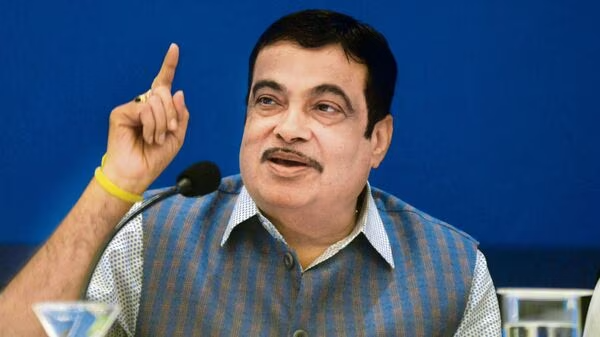India’s Drive to Become the World’s Top Automobile Manufacturer by 2027
In a remarkable declaration made on the sidelines of the 27th World Road Congress in Prague, India’s Union Minister for Road Transport and Highways, Nitin Gadkari, unveiled an ambitious vision for the country’s automotive industry. India is setting its sights on surpassing China and securing the coveted title of the world’s number one automobile manufacturer by the year 2027. During his address, Minister Gadkari not only articulated this audacious goal but also shed light on the imminent inauguration of the Urban Extension Road 2, a vital ring road project in New Delhi, slated to open its lanes in the next 2-3 months. This project promises to significantly reduce travel time to and from the capital’s airport, easing the lives of countless commuters.
India’s Ascent in the Automobile Arena
India’s journey to attain supremacy in the global automobile sector has been nothing short of remarkable. Over the past decade, the country has witnessed exponential growth, with its automotive market expanding from a modest Rs 4.5 lakh crore to a staggering Rs 12.5 lakh crore. Notably, just last year, India surpassed Japan to claim the third position in the global automobile market, trailing only behind the United States and China.
Factors Paving the Road to Success
Several factors converge to make India a formidable contender in the race to become the world’s top automobile manufacturer. Chief among them is the nation’s abundant engineering talent pool, which churns out skilled professionals ready to innovate and lead in the automotive industry. Coupled with this, India boasts the advantage of lower labor costs, making it an attractive destination for automakers seeking to optimize production expenses.
In addition to these advantages, India enjoys favorable government policies that incentivize investment and foster growth within the automotive sector. Government initiatives such as “Make in India” and policies promoting electric vehicles (EVs) have set the stage for a robust automotive ecosystem.
Electric Dreams and Global Partnerships
One of the most exciting developments in the Indian automotive landscape is the potential entry of electric vehicle giant Tesla into the market. There have been ongoing discussions regarding Tesla’s interest in establishing a manufacturing facility in India. Such a move could revolutionize the electric vehicle market in the country and align with the Indian government’s green mobility ambitions.
On a parallel track, Chinese EV titan BYD expressed intentions to invest a substantial $1 billion in India. However, these plans encountered a roadblock due to border tensions between India and China, leading to the proposal’s rejection by the Indian government. Nevertheless, this highlights the allure of India as a market ripe for electric vehicle expansion.
A Resilient Comeback
The Indian automobile market has demonstrated remarkable resilience in recent years. Despite facing the unprecedented challenges posed by the COVID-19 pandemic and the subsequent semiconductor shortage-induced supply chain disruptions, India’s automotive sector has rebounded admirably. The revival has manifested in both increased local production and robust sales, as well as growing exports, reinforcing the nation’s status as a significant player on the global stage.
As India accelerates its drive toward automotive dominance, its prospects continue to shine brightly. With a strong foundation of talent, cost-effectiveness, and supportive government policies, India’s ascent as the world’s leading automobile manufacturer by 2027 seems not only attainable but inevitable. The journey may be fraught with challenges, but India’s determination and potential make this audacious goal an exciting reality on the horizon.

1 thought on “India Accelerates Plans to Overtake China as World’s Auto Leader by 2027: Nitin Gadkari”